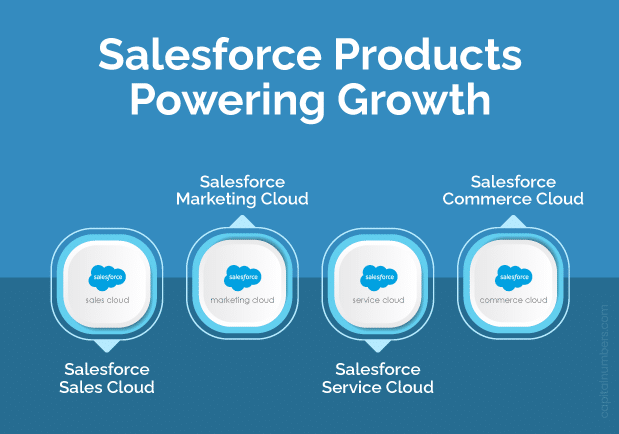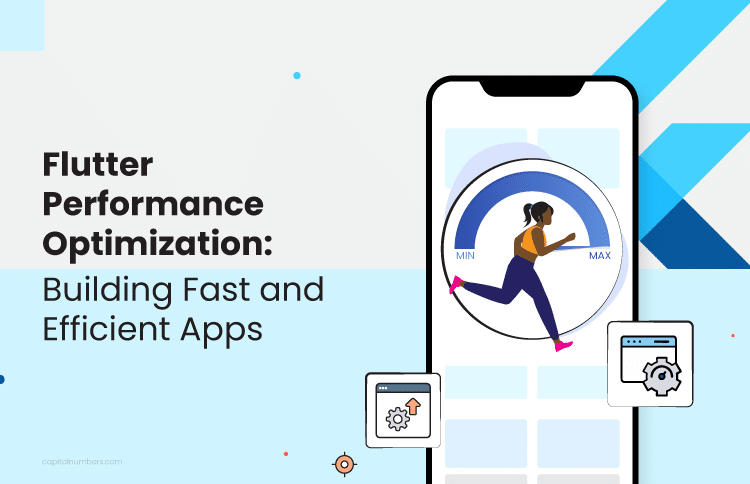How Salesforce Powers Digital Transformation and Fuels Business Growth
Table of Contents
Salesforce, a leading CRM platform, is transforming the way businesses interact with customers. By centralizing customer information, sales pipelines, marketing campaigns, and customer service, Salesforce empowers organizations to drive digital transformation and achieve significant growth.
Digital transformation is about integrating digital technology into every aspect of a business to fundamentally change how it operates. Salesforce is at the forefront of this revolution, providing the tools and capabilities businesses need to succeed in the digital age.
The Role of Salesforce in Digital Transformation
1. Centralizing Customer Data
A unified customer view is essential for effective customer engagement and relationship management. Salesforce provides a centralized platform that brings together customer information from various sources, creating a comprehensive 360-degree view of each customer.
Salesforce’s Customer 360 platform offers a suite of capabilities that enable businesses to:
- Consolidate customer data: Gather and store customer information from multiple sources, including sales, marketing, service, and social media.
- Create customer profiles: Build detailed profiles of individual customers, including demographics, preferences, and purchase history.
- Segment customers: Group customers based on shared characteristics to target marketing efforts and personalize offers.
- Gain insights: Analyze customer data to identify trends, opportunities, and areas for improvement.
2. Enhancing Customer Engagement
Salesforce streamlines customer communication and engagement through features such as:
- CRM: Managing customer relationships, tracking interactions, and automating sales processes.
- Marketing automation: Personalizing marketing campaigns, automating lead nurturing, and tracking marketing performance.
- Customer service automation: Providing self-service options, automating support tasks, and tracking case resolution.
By leveraging these tools, businesses can improve customer satisfaction, increase loyalty, and drive sales.
3. Streamlining Operations and Business Processes
Salesforce can be integrated with existing systems and tools to create a more streamlined and efficient workflow. This can help businesses:
- Automate workflows: Automate repetitive tasks, such as lead generation, opportunity qualification, and order processing.
- Improve data management: Centralize data storage and ensure data accuracy and consistency.
- Generate reports and analytics: Create custom reports and dashboards to track key performance indicators (KPIs) and make data-driven decisions.
By streamlining operations and business processes, businesses can increase productivity, reduce costs, and improve overall efficiency.
You May Also Read: The Future of Digital Transformation: 10 Predictions for 2024
Salesforce Products Powering Growth

1. Salesforce Sales Cloud
Salesforce Sales Cloud is a comprehensive CRM platform designed to streamline sales processes and drive revenue growth. Key features include:
- Lead management: Capture, qualify, and nurture leads to convert them into customers.
- Sales forecasting: Accurately predict sales revenue and identify opportunities for growth.
- Pipeline tracking: Visualize sales pipelines, monitor progress, and identify potential bottlenecks.
2. Salesforce Marketing Cloud
Salesforce Marketing Cloud offers a suite of tools for marketing automation, email marketing, social media marketing, and personalization. Key features include:
- Email marketing: Create personalized email campaigns and track performance metrics.
- Social media marketing: Manage social media channels, engage with customers, and measure campaign effectiveness.
- SMS marketing: Send targeted SMS messages to customers.
- Personalization: Deliver personalized content based on customer preferences and behavior.
- Customer journey mapping: Visualize the customer journey and identify opportunities for improvement.
3. Salesforce Service Cloud
Salesforce Service Cloud provides a comprehensive platform for managing customer service interactions. Key features include:
- AI-driven chatbots: Automate customer service inquiries and provide 24/7 support.
- Knowledge bases: Create self-service portals and knowledge bases to empower customers to find answers to their questions.
- Case management: Track and manage customer support cases efficiently.
4. Salesforce Commerce Cloud
Salesforce Commerce Cloud is a powerful platform for building and managing online stores. Key benefits include:
- Seamless B2B/B2C experiences: Create personalized shopping experiences for both business and individual customers.
- Scalability: Handle increased traffic and growth without sacrificing performance.
- Integration with other Salesforce products: Easily integrate with Sales Cloud, Marketing Cloud, and Service Cloud for a unified customer experience.
The Power of Analytics in Salesforce
1. Salesforce Einstein AI
Salesforce Einstein AI is a powerful tool that leverages artificial intelligence to enhance data insights and decision-making within the Salesforce platform. By harnessing the power of AI, businesses can:
- Predict future outcomes: Use predictive analytics to forecast sales, identify at-risk customers, and anticipate market trends.
- Personalize recommendations: Deliver tailored recommendations to customers based on their preferences and behavior.
- Automate tasks: Automate routine tasks, such as lead scoring and assignment, to improve efficiency and productivity.
- Gain deeper insights: Uncover hidden patterns and trends in data that may not be apparent to human analysts.
2. Tableau Integration for Advanced Analytics
Tableau is a powerful data visualization tool that can be seamlessly integrated with Salesforce. By combining the capabilities of Salesforce and Tableau, businesses can:
- Create interactive dashboards: Visualize data in real-time to gain actionable insights.
- Monitor key performance indicators (KPIs): Track the performance of sales, marketing, and customer service metrics.
- Identify growth opportunities: Uncover new business opportunities by analyzing customer data and market trends.
- Make data-driven decisions: Use data insights to inform strategic planning and decision-making.
Industry Use Cases of Salesforce for Digital Transformation
1. Healthcare
Salesforce Health Cloud empowers healthcare organizations to deliver personalized patient care and improve outcomes. Key features include:
- Patient relationship management: Track patient interactions, preferences, and health history.
- Clinical data management: Manage electronic health records (EHRs) and other clinical data.
- Care coordination: Improve collaboration between healthcare providers and ensure seamless patient care.
2. Financial Services
Salesforce Financial Services Cloud provides a comprehensive platform for financial institutions to manage customer relationships and streamline operations. Key features include:
- Client relationship management: Track client interactions, preferences, and financial goals.
- Regulatory compliance: Ensure compliance with industry regulations and standards.
- Wealth management: Optimize investment portfolios and provide personalized financial advice.
3. Manufacturing
Salesforce Manufacturing Cloud helps manufacturers optimize their supply chain, improve production efficiency, and enhance customer satisfaction. Key features include:
- Supply chain management: Track inventory levels, manage supplier relationships, and optimize logistics.
- Production management: Monitor production processes, track quality control, and identify areas for improvement.
- Customer service: Provide efficient customer support and manage service requests.
Salesforce AppExchange: Extending Functionality
Salesforce AppExchange is a marketplace where businesses can discover and install third-party applications that extend the capabilities of the Salesforce platform. These apps can add specific features, integrate with other systems, or address industry-specific needs.
The importance of AppExchange for digital transformation:
- Customization: AppExchange allows businesses to customize their Salesforce instances to meet their unique requirements.
- Integration: Apps can integrate Salesforce with other systems, such as marketing automation, CRM, and ERP platforms.
- Efficiency: AppExchange offers pre-built solutions that can save time and effort when developing custom applications.
- Innovation: Discover new and innovative solutions to drive business growth.
Popular apps on AppExchange:
- DocuSign: Streamline document workflows and e-signatures.
- Zoom: Integrate video conferencing and collaboration tools into Salesforce.
- Xero: Connect your accounting system to Salesforce for financial management.
How businesses use AppExchange for industry-specific solutions:
- Healthcare: Find apps for patient relationship management, electronic health records, and medical billing.
- Financial services: Discover apps for wealth management, investment analysis, and compliance.
- Manufacturing: Find apps for supply chain management, production planning, and quality control.
- Retail: Explore apps for e-commerce, inventory management, and customer relationship management.
By leveraging AppExchange, businesses can expand the capabilities of Salesforce and tailor the platform to their specific needs, driving digital transformation and achieving their business goals.
Customization and Scalability with Salesforce
Custom Development with Salesforce
Salesforce offers a high degree of flexibility and customization, allowing businesses to tailor the platform to their specific needs. This can be achieved through:
- Creating custom workflows: Automating processes and streamlining workflows to improve efficiency.
- Building custom dashboards: Designing dashboards to visualize key metrics and track performance.
- Integrating with other systems: Connecting Salesforce with other applications and data sources to create a unified platform.
Scalability for Growing Businesses
Salesforce is a highly scalable platform that can accommodate businesses of all sizes, from small startups to large enterprises. This scalability is achieved through:
- Cloud-based infrastructure: Salesforce is hosted on a cloud platform, providing flexibility and scalability.
- Scalable pricing models: Salesforce offers various pricing plans to suit the needs of different businesses.
- API integrations: Salesforce can be easily integrated with other applications and systems, allowing for seamless scalability.
Salesforce and Emerging Technologies
AI and Machine Learning
Salesforce Einstein AI, a powerful AI engine built into the Salesforce platform, is revolutionizing the way businesses leverage customer data. Key applications include:
- Predictive analytics: Forecasting sales, identifying at-risk customers, and predicting customer churn.
- Personalized recommendations: Delivering tailored product recommendations and offers based on customer behavior and preferences.
- Automated tasks: Automating routine tasks, such as lead scoring and assignment, to improve efficiency.
- Enhanced customer service: Using AI-powered chatbots and virtual assistants to provide 24/7 support and improve customer satisfaction.
Internet of Things (IoT)
Salesforce IoT Cloud enables businesses to connect devices, gather data, and gain valuable insights. Key applications include:
- Connected products: Tracking product usage, performance, and customer satisfaction.
- Predictive maintenance: Using IoT data to predict equipment failures and prevent downtime.
- Supply chain optimization: Improving supply chain visibility and efficiency through real-time data.
Industry Examples:
- Manufacturing: Using IoT to track equipment performance, optimize production processes, and reduce downtime.
- Retail: Using IoT to track inventory levels, optimize store layout, and enhance customer experiences.
Blockchain
Salesforce Blockchain provides a secure and transparent platform for businesses to track and manage assets, transactions, and supply chains. Key applications include:
- Supply chain transparency: Tracking the origin and journey of products to ensure authenticity and traceability.
- Financial services: Securing transactions, preventing fraud, and improving compliance.
- Intellectual property management: Protecting digital assets and preventing unauthorized copying.
By leveraging these emerging technologies, businesses can unlock new opportunities, improve efficiency, and drive digital transformation.
Need expert Salesforce Development Services? We’re your go-to solution. Get in touch now.
Challenges and Solutions in Salesforce Implementation
Common Challenges in Digital Transformation
- Resistance to change: Overcoming resistance from employees who may be hesitant to adopt new technologies or processes.
- Legacy system integration: Integrating Salesforce with existing systems and data can be complex and time-consuming.
- Data migration: Migrating data from legacy systems to Salesforce can be challenging, especially for large organizations.
Solutions:
- Effective communication and change management: Clearly communicate the benefits of Salesforce and address concerns from employees.
- Data migration planning: Develop a comprehensive data migration plan to ensure a smooth transition.
- Partner with experienced Salesforce consultants: Seek guidance from experts who can help overcome challenges and optimize Salesforce implementation.
Salesforce Implementation Partners
Certified Salesforce partners play a crucial role in ensuring successful Salesforce implementations. These partners have deep expertise in Salesforce and can provide valuable guidance, support, and resources.
Benefits of working with a Salesforce partner:
- Expertise and experience: Partners have in-depth knowledge of Salesforce and can offer best practices and recommendations.
- Customization and integration: Partners can help customize Salesforce to meet specific business needs and integrate it with existing systems.
- Training and support: Partners can provide training and ongoing support to ensure successful adoption of Salesforce.
- Faster implementation: Partners can accelerate the Salesforce implementation process, reducing time to value.
- ROI optimization: Partners can help businesses maximize their return on investment from Salesforce.
By partnering with a reputable Salesforce consulting firm, organizations can overcome common challenges, accelerate implementation, and achieve better results.
Conclusion
Salesforce is a powerful platform that can drive digital transformation and fuel business growth. By centralizing customer data, enhancing customer engagement, streamlining operations, and leveraging emerging technologies, businesses can achieve significant benefits.
The future of digital transformation is bright, and Salesforce is at the forefront of innovation. As technology continues to evolve, Salesforce will remain a vital tool for businesses seeking to stay competitive and succeed in the digital age.
To start your digital transformation journey with Salesforce, contact us today for a consultation. Our experts can help you assess your needs, develop a customized strategy, and implement Salesforce solutions that drive results.















